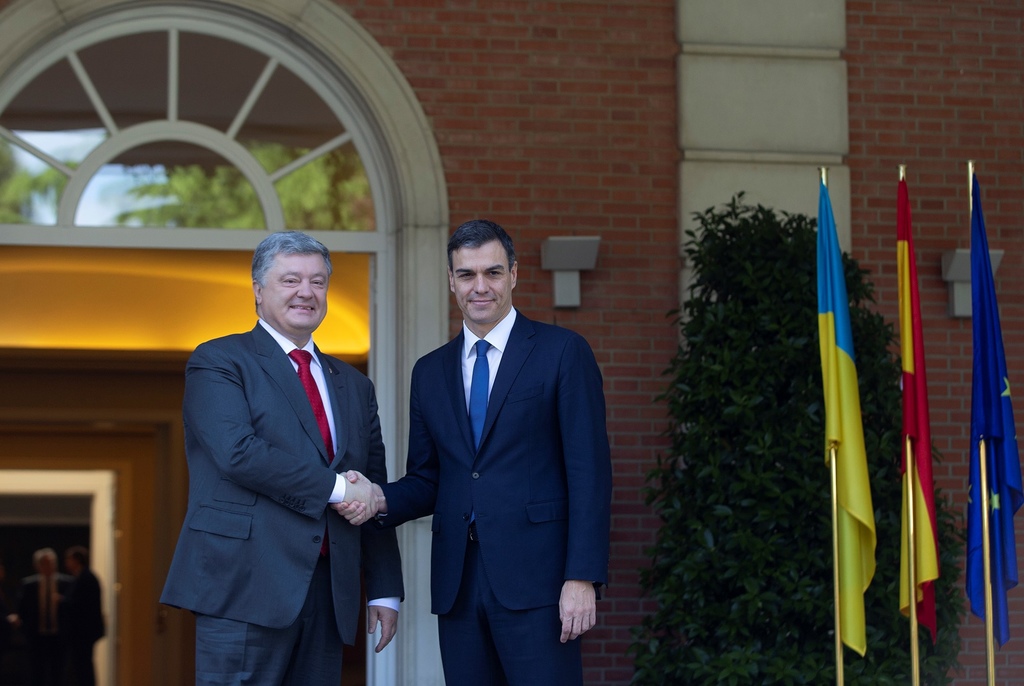RUSSIA MONITOR
Date: 13 June 2018
Spain’s New Eastern Foreign Policy Is Yet to Come
The fact that an officer known for his pro-Russian views was appointed Director General of Spain’s Department of National Security has recently caused a wave of speculation that thanks to such a nomination, Madrid might introduce more favourable policy towards Moscow. However, it is too early for such claims. There is no doubt that Spanish socialists have always been closer to Russia than right-wing politicians, but the current political situation in the Iberian Peninsula seems so complicated that the final conclusions could be drawn only after the elections scheduled to occur next year.

Pedro Sanchez was sworn in as Spain’s new prime minister on June 7. He became the head of the government after Mariano Rajoy (former prime minister and People’s Party leader) was voted out of office in a no-confidence motion. The composition of the new cabinet is considered as strongly leftist and “progressive”; the Spanish Socialist Workers’ Party (Partido Socialista Obrero Español, PSOE) once opposed Spain’s entry into NATO structures whereas other left-wing parties in the countries of Southern Europe have traditionally been skeptical about the alliance with the USA (instead, they have opted for cooperation with Russia). In this context, the information that the Prime Minister has chosen the well-known Kremlin sympathizer as the candidate for the office of the Director General of the Department of National Security (Departamento de Seguridad Nacional, DSN) must have caused some concern. The above-mentioned institution is the most important body that supports the government’s work in terms of security while its president is the prime minister’s immediate advisor on these issues.
Spanish Army reserve colonel Pedro Banos is known for his pro-Russian views; he has also criticized NATO and the USA. He regularly performs as an expert in Spanish-speaking programs in two major media tools of Kremlin propaganda: RT TV and Sputnik news agency. Banos also believes that Russia has the full right to build its zone of influence in the closest neighborhood, praises Putin’s government and calls for cooperation with Moscow in the fight against Islamic terrorism. The colonel denied that the Kremlin was involved in the assassination attempt of Russian ex-spy Sergey Skripal. He also claims that Russia did not support separatist mood in Catalonia by the use of social media, which has been the reason for the protests against his candidacy led by right-wing groups.
The new government’s policy towards Russia remains unknown regardless of the final result of Banos’s candidacy. Nonetheless, it is difficult to expect that Spain’s new cabinet will continue the policy of its predecessors; Rajoy’s government welcomed the idea of strengthening NATO’s eastern flank as well as his ministers began to increase military expenditures. So the new left-wing government will be rather unlikely to strengthen the Alliance; the cabinet will also focus on the issues that are typical for southern Europe such as the question of African immigrants. In addition, Sanchez has actually limited room for maneuver until the end of the year as he is obliged to act within the budget adopted by his predecessor. New parliamentary elections will be held in May 2019 and it is difficult to predict the composition of the political forces. It needs to be stressed out that Sanchez’s nomination was possible due to the votes from the left wing and increasingly pro-Russian Podemos party as well as from the Basque and Catalan separatists. Spain is unlikely to follow the example of Italy when it comes to its attitudes towards Moscow. After the first international meeting held by Sanchez as Spain’s new prime minister (the Ukrainian president’s visit was planned much earlier), Petro Poroshenko announced that the new government supported Kiev’s position on the UN peacekeeping mission in Donbass as well as he advocated the idea of extending EU sanctions on Russia. It is also essential how the Kremlin-dependent media report and comment on Spain’s current political situation; it is unlikely for Russia to make Spain its new ally within the EU and NATO structures.
All texts published by the Warsaw Institute Foundation may be disseminated on the condition that their origin is credited. Images may not be used without permission.














